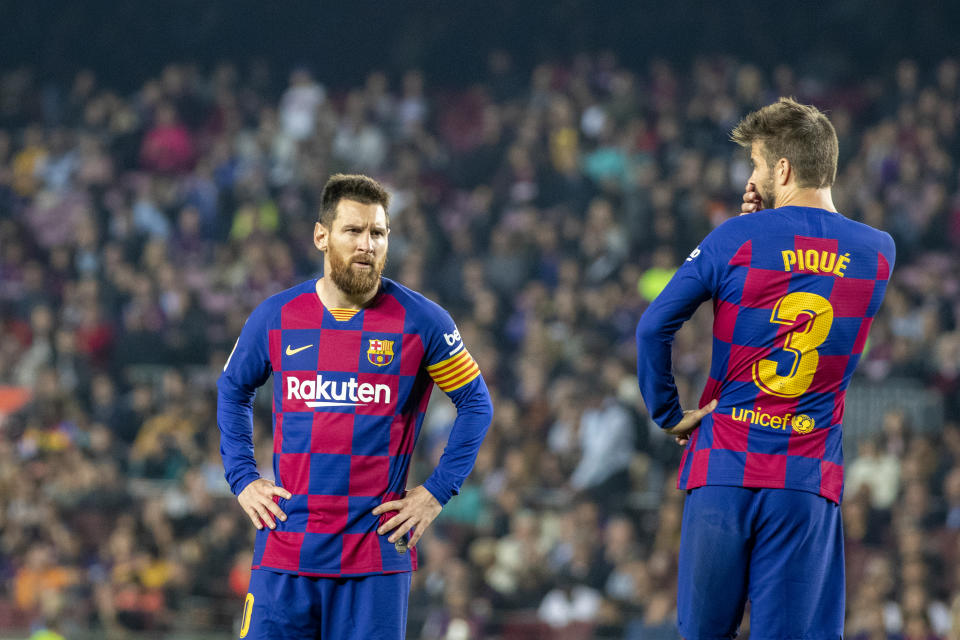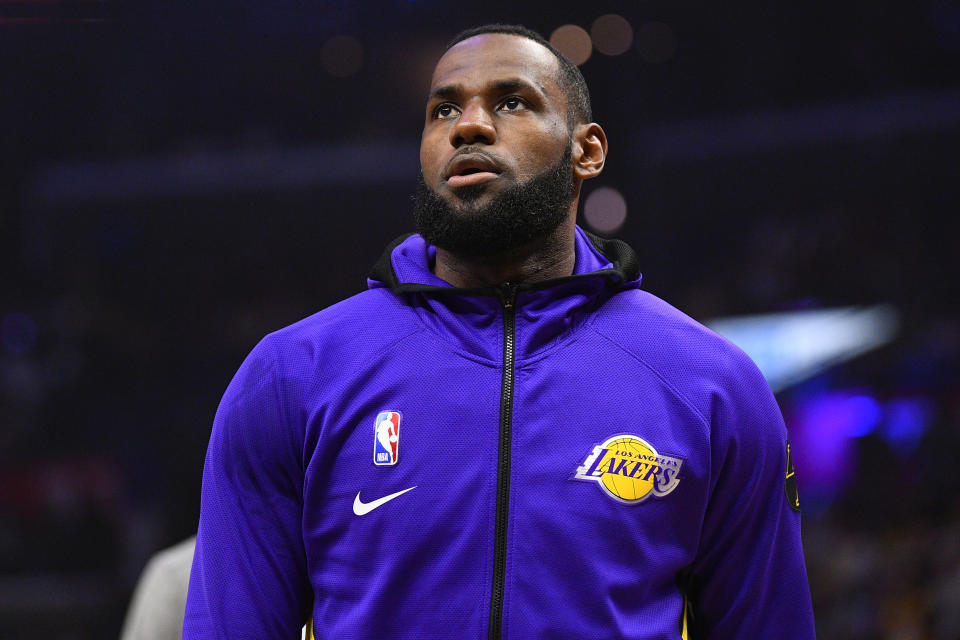Should titles won in a pandemic-altered season have an asterisk next to them? Of course not
When the seasons interrupted, delayed or shortened by COVID-19 are finally completed, will the championships count as heavily? Will the rings be quite as garish? Will legacies be affixed with an asterisk?
If LeBron James can drag his Los Angeles Lakers through the truncated remainder of the regular season and win another title in Orlando, will his fourth championship be considered equivalent to his first three? If the Champions League is ever resumed, could Lionel Messi’s potential fifth European crown weigh as heavily as the others? If Major League Baseball plays a drastically shortened season, will the divisional, league and World Series banners also be cut down to a commensurate size? Will a footnote be placed beneath Liverpool’s first Premier League trophy in three decades because the league-pulverizing Reds had to wait three months on their final few points to clinch the title?
These are some of the questions that will be posed when sports resume and, eventually, our new normal is established. How do we reckon with the disruption of a crippling global pandemic? Is the 2020 season discredited?
We should count those titles the same as any other.
That’s what precedent mandates. This has happened before, with a major league season affected by an outside factor. A lot.

The 1918 MLB campaign was cut short because of the last groans of World War I. The regular season was stopped about 25 games early, with the Boston Red Sox and Chicago Cubs proceeding immediately to the World Series – the Sox won, four games to two – even though neither team was anywhere near clinching the pennant.
During World War II, baseball played on, deemed too important to national morale by President Franklin Roosevelt to be interrupted. But 500 major leaguers and more than 4,000 minor leaguers served in the military during the war. Some, like Ted Williams, Bob Feller and Yogi Berra – who wasn’t yet a major leaguer – fought and made genuine war heroes of themselves. Plenty of others spent the war playing exhibition games for the troops in Hawaii, never coming anywhere close to the action. The big leagues were so depleted of talent that the Cincinnati Reds used a 15-year-old pitcher; the New York Yankees put their 42-year-old batting practice pitcher into a game, 22 years after his last big-league appearance; and the St. Louis Browns fielded a one-armed outfielder.
At any rate, we count the St. Louis Cardinals’ World Series titles from 1942 and ’44 the same as any other, just like we do the Yankees’ in ’43 and the Detroit Tigers’ in ’45.
A strike shortened the 1995 baseball season but we don’t think any less of the Atlanta Braves’ World Series title that year – the only silverware in a gilded age for that ballclub. The Washington Redskins won the Super Bowl in 1982 and ’87, both in strike-shortened seasons. We still count those. Ditto with the San Antonio Spurs’ 1998-99 championship and the Miami Heat’s in 2011-12, both lockout seasons. There is no asterisk behind either Tim Duncan’s or James’s first titles. Or indeed Patrick Kane’s second Stanley Cup with the Chicago Blackhawks in 2013, in another lockout campaign.

Certainly, not all shortened seasons look the same. If baseball winds up playing a regular season that’s half that of a standard campaign, or even less than a third – because its team owners seem hellbent on dumping any potential losses on the players, after years of steady profits – the validity of the outcome will be questioned. That’s especially true in a sport that’s so fixated on numbers and married to tradition as baseball. But how do you adjudicate the difference between a half-season and a full season played with replacement players?
During WWII, the big leagues had only 16 teams. At one time or another, 125 percent of the league’s total roster spots was away in the military. And that was true 10 times over in the minors. Is a full season played with whatever scrubs could be scrounged up more valid than half a season with every major star available? And if so, does that suggest that a baseball season with an exceptional number of rainouts should also be viewed differently from a sun-splashed season? Because there will inevitably have been an effect.
There’s no parsing the differences because they yield only false equivalences. Every season, and indeed every era, is a function of its own circumstance. War seasons were a victim of geopolitics. Lockout and strike seasons were brought on by economic disputes. And a pandemic season, likewise, was disrupted by a force that superseded the sport itself.
The titles won will count the same. Or they should, anyway. All rings are the same. Or else you wind up litigating every last variable until only the perfectly undisturbed season remains. And there are none of those.
Leander Schaerlaeckens is a Yahoo Sports soccer columnist and a sports communication lecturer at Marist College. Follow him on Twitter @LeanderAlphabet.
More from Yahoo Sports:

